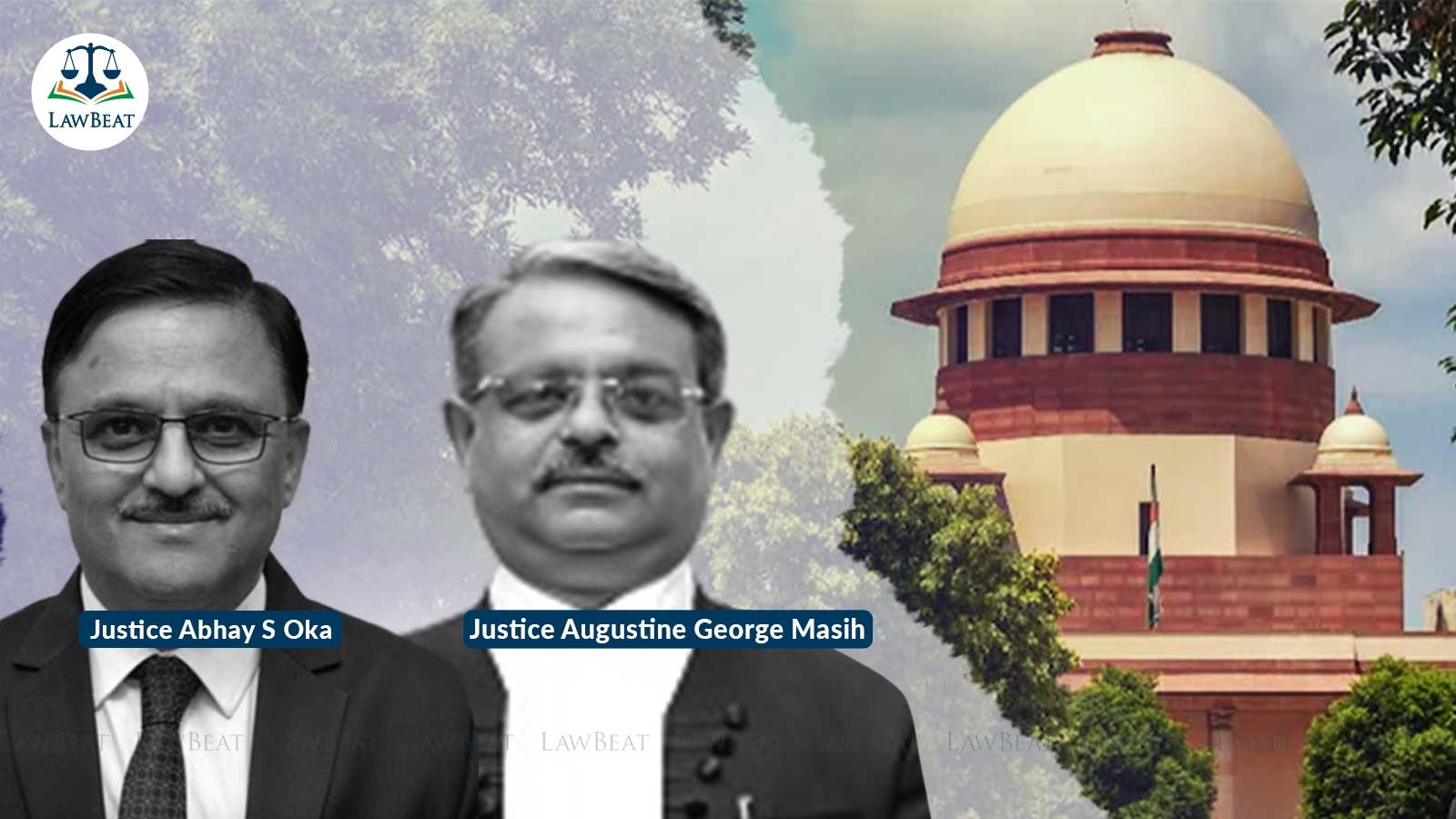High Court Cannot Deny Bail by Setting Timeframe for Trial Court to Complete Proceedings: SC

Court said it cannot be that the bail is denied on the ground that the trial will be completed in a time-bound schedule
The Supreme Court recently observed that the high courts cannot deny bail to an accused only on the ground that the trial court has been directed to conclude the proceedings in a time-bound manner.
A bench of Justices Abhay S Oka and Augustine George Masih expressed concern that several high courts while rejecting the bail applications, are fixing a time-bound schedule for the conduct of trials.
"It cannot be that the bail is denied on the ground that the trial will be disposed of in a time-bound schedule," the bench said.
Court pointed out that in High Court Bar Association, Allahabad Vs State of U.P. & Ors (2024), a Constitution Bench of the top court has taken a view that as a matter of rule, the Constitutional Courts should not fix a time-bound schedule for conduct of cases before the Trial and other Courts and the said approach can be adopted only in very exceptional cases.
"Notwithstanding the pronouncement of law by the Constitution Bench of this Court, we have noticed that several High Courts while rejecting the bail applications, are fixing time-bound schedule for the conduct of trials," the bench said.
The court issued notice to the state of West Bengal on a special leave petition filed by one Rup Bahadur Magar alias Sanki alias Rabin, challenging the validity of the Calcutta High Court's order of June 26, 2024.
The bench sought response from the state government by October 4 in the case.
The high court had rejected the bail application by the petitioner in a case related to robbery, attempt to murder and criminal conspiracy and under other provisions of the Arms Act, after noting that there were eyewitnesses naming the petitioner as having participated in the alleged offence. The petitioner had been identified in the TI Parade. There was also recovery from the petitioner.
The petitioner sought bail on the ground that he was in custody for about two years and six months. 72 witnesses had been named in the charge sheet, and only three witnesses had been examined so far. He also cited the Supreme Court's order granting bail to a co-accused.
The high court, however, noted the petitioner did not stand on the same footing as co-accused.
"However, we cannot lose sight of the fact that a citizen's right to personal liberty is a fundamental right recognized by Article 21 of the Constitution of India. The petitioner has been in long incarceration. We direct the Trial Court to expedite the trial to the fullest extent and bring the same to its logical conclusion as early as possible but definitely within a period of one year from the next date fixed for recording of evidence, without granting any unnecessary adjournment to either of the parties," the high court had said.
The high court had also clarified that in the event the trial is not concluded within the time period the petitioner will be at liberty to renew his prayer for bail.
It had directed the parties to communicate this order to the trial court.
Case Title: Rup Bahadur Magar @ Sanki @ Rabin Vs The State of West Bengal
